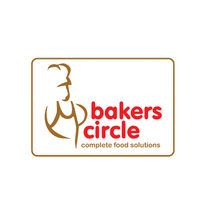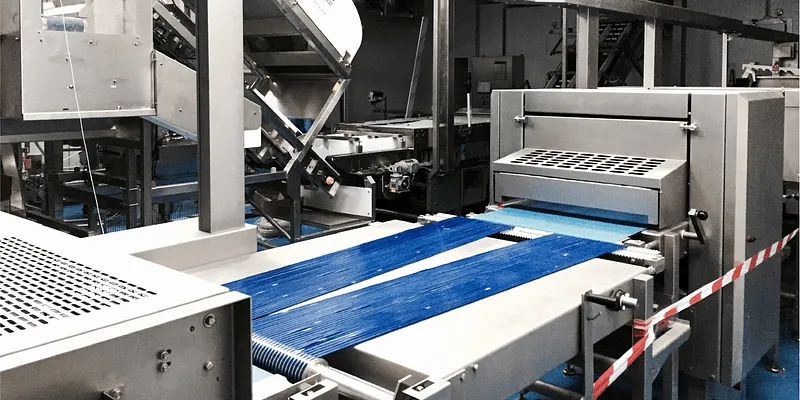
Bakers Circle
View Brand PublisherHow Bakers Circle is revolutionising food tech without limiting to internet algorithms
The COVID-19 pandemic might have kept people away from their favourite restaurants, but they didn't have to wait long before their favourite brands doubled down to ensure that delicacies were just a call away. The pandemic was just an example of how food technology is enabling the food and hospitality industry to make strides and delight customers, even when the odds are stacked against them.
From freshly made dishes to quality ingredients and hard to find delicacies being made available all year round, food tech and food preservation have empowered brands to go beyond their usual offerings and provide their patrons wholesome and tasty meals whenever they want. is one of the premier names in the food processing industry, ensuring complete food solutions for bakeshops, restaurants, and businesses, with a wide range of exquisite, ready-to-use bakery delicacies.
From where it all began

Incorporated in 2001 by Dev Lall, Bakers Circle (India) Pvt Ltd is a food solutions company that has been developing products for leading brands, while offering them exquisite and good quality products.
Based out of New Delhi, the company’s factories are spread across Kashipur, Uttarakhand, and Jebel Ali, UAE. Much of Bakers Circle’s success can be credited to its team of dedicated and enthusiastic professionals who come from diverse backgrounds and a robust supply chain that ensures its customers get what they are seeking.
Bakers Circle was among the first entrants in the food tech sector in India and has helped many brands ramp up their reach with its quality products. However, the Bakers Circle’s journey started when Dev Lall returned to India in 2000 after working in the global hospitality sector for years. Given his experience, he observed how the Indian hospitality sector worked, and felt that everything in India took too much effort. Besides, most professionals were paid much less than the efforts they were putting in. “I realised that India would have to move towards global best practices sooner rather than later. There were many low hanging fruits that would have allowed entry, but frozen bakery and confectionery was a niche and complicated category, and had a significant gestation period. Plus, I had skills needed to leverage this niche category. My efforts have paid off well over the years.”
Dev believed in banking on passion to achieve what is otherwise deemed impossible. The thought also helped his employees, many of whom came from various backgrounds, to piece this project together. “We collaborated with several international skilled chefs and professionals from the industry to guide us. We still have most of our original team members and they are still involved in everyday operations of the company. They come from diverse backgrounds such as engineering, hotels, flight services, beverages.”
Along with a 15+ strong team of food scientists, R&D professionals led by an experienced chef and a manufacturing facility run by managers with more than two decades of experience, Bakers Circle believes that sales is more about customer experience rather than just selling. “Our supply chain spans across multiple countries and we partner with some of the best vendors in the industry to create a dynamic solution”, adds Dev.
One-stop-shop for the foodservice sector
Currently, Bakers Circle supplies frozen dough and confectionery to almost every major QSR operator in India with a dominant market share in the segment. “We have a scalable business model of supplying frozen goods, where we prep the product up to 80 percent and ship it out to the stores in frozen form,” adds Dev.
That effectively makes them the bread suppliers for outlets of retail food chain Subway not only in India but also enabling a geographic reach of almost 7,000 km. That also includes shipping bread to the middle east as well as Africa and Sri Lanka
So, if you are enjoying a Subway sandwich in any of these geographies there is a very good chance the bread is a product of an extensive global supply chain of crucial and proprietary raw materials that are pieced together at one of Bakers Circles’ factories . The tedious process is the secret to the wholesome bread that goes into making delicious Subway sandwiches that taste the same, whether you’re sitting in Ladakh, Shillong, Kuwait, or Mauritius.
Bakers Circle is also equally known for their extensive dessert portfolio for famous restaurant chains and QSR brands such as Rebel Foods, KFC, Pizza Hut and McDonald’s. It also handles a prominent portion of the food portfolio for IKEA’s in-store restaurants at a pan-India level. The company uses state-of-the-art freezing technology to manufacture clean-label products that do not use any artificial ingredients and harmful chemicals including preservatives.

“Our technology helps brands and restaurants reduce waste, costs, and helps them pivot rapidly to changing demands and trends. It enables them to enhance their staff’s skills with minimal training and churn out world standard products with little or no fuss. Last but not the least, from Kashmir to Kanyakumari it allows them to standardise the look, taste, and feel of their products rapidly and frequently,” Dev adds.
Ensuring complete food solutions
Bakers Circle ensures a complete solution for brands that espouse the farm to fork approach. However, the road carved was to be crossed with massive patience as the gestation period for setting up a company like Bakers Circle was filled with roadblocks like a fragmented supply chain, lack of quality and standardised raw materials, fluid regulations, and high capital costs. “We addressed all these challenges by working with domestic and international vendors, forging relationships, and most importantly raising money at the earliest,” explains Dev.
Talking about the pandemic, Dev considers the COVID-19 crisis to be a wake-up call for the food and hospitality industry. The pandemic brought to forefront the benefit of a robust supply chain of frozen goods that is back-linked to a tech-enabled manufacturing system. “During the pandemic, cloud kitchens exploded across India and we became pioneers for developing simple, profitable, and scalable products for many unicorns. Frozen goods moved from niche to mainstream, and restaurants could preserve food better without compromising its quality,” he adds.
After the lockdowns, exacerbated labor issues and real estate costs accelerated the move towards the frozen supply chain, thereby helping restaurants and eateries to create superior and consistent products.
Here, Dev puts forward the name of and Ola Foods, which launched their growth stories during the pandemic extensively leveraging the years of research and food technology that Bakers Circle had nurtured. Food technology’s integration with the internet led to creation of products that brought the complete dining experience home seamlessly.
Funding and growth
Bakers Circle raised early funding from GIA, a private equity fund, in 2006. With the funds, the company acquired a 1.65-acre property in Uttarakhand for setting up a production facility producing almost 400 tons per month. In 2015, Gaja Capital ploughed in another round of capital to allow Bakers Circle to take the next technological leap in its evolution towards a better, cleaner and more efficient product. Subsequent expansion has been funded through internal accruals.
They might have started as a single customer venture which made up 100 percent of Bakers Circle’s business, but today almost every QSR, FDR or cloud kitchen in India is sourcing at least one or several of their products from the company. Besides, Bakers Circle also ships products to Middle East countries and east Africa. “Today we count almost all major food brands operating in India as our customers and we continue to dominate this space with several exclusive tie-ups almost 20 years later. If you eat out or order in, there is a very good chance you have tasted our products without even realising it,” adds Dev.
The roadmap for the future
Presently, Bakers Circle has already started expanding its facilities by building a 60,000 sq foot facility next to the current 40,000 square foot one in Uttarakhand. Besides, it also plans to roll out new technology-driven production capabilities. Dev believes that the next five years would belong to this space and having the early bird advantage has helped the company score brownie points for forging new relationships while aiding clients to grow and scale their businesses. “We see India taking a giant leap in the product interface space, and intend to be at the forefront of developing these technologies and products,” concludes Dev.







